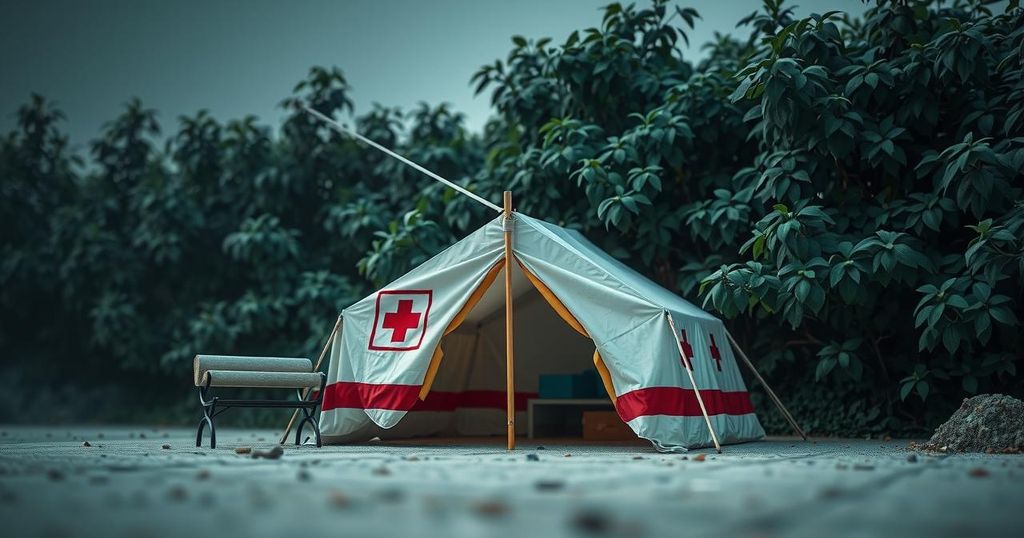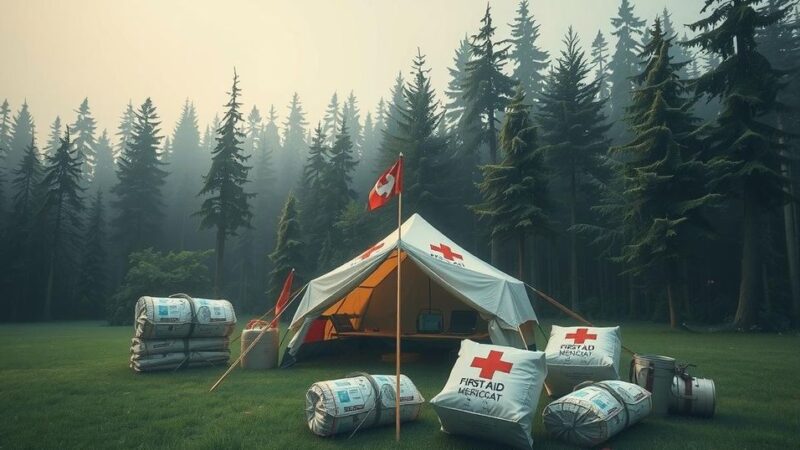The resurgence of fighting in eastern DRC has led to significant civilian displacement. MSF is actively providing emergency support to displaced individuals and local health facilities. The humanitarian needs are growing due to food shortages, inadequate shelter, and medical care, compelling MSF to reinforce its healthcare programs in Lubero territory.
Fighting has resumed in Lubero territory, eastern Democratic Republic of Congo (DRC), leading to increased displacements as civilians flee the conflict. Doctors Without Borders (MSF) is intervening once again to provide essential support and supplies to affected communities as they cope with the consequences of ongoing violence and heightened humanitarian needs.
The Grand Nord area of North Kivu province has witnessed a ceasefire lapse since December 2024, as clashes resumed between Congolese forces and the M23 armed group, exacerbating the plight of civilians who are bearing the brunt of this violence. The conflict has resulted in over 290,000 people being displaced in Lubero, with many forced to evacuate their homes amid intensifying bombardments.
Displaced individuals primarily seek refuge with relatives and host families, although some are left vulnerable, sheltering in abandoned buildings. Host families, already struggling with rising prices and disrupted supply chains due to the conflict, extend their hospitality to displaced persons, sharing limited resources amidst these challenging conditions.
The needs of displaced individuals surveyed by MSF indicate a critical shortage of food, blankets, and basic hygiene products, particularly for women and children. The existing water supply systems are overwhelmed, and insufficient sanitation facilities pose additional challenges to health and safety for the growing displaced population.
In response, MSF has initiated healthcare support through two primary health centers, covering hospitalization costs for children and addressing malnutrition through therapeutic programs. MSF is also enhancing vaccination efforts to prevent outbreaks and is focused on improving water access in healthcare facilities to address urgent needs among displaced individuals.
Efforts to tackle the rising issue of sexual violence among displaced populations are a priority for MSF, reflecting the increased reports of such incidents in conflict zones. By implementing comprehensive health programs and supporting local resources, MSF aims to mitigate the suffering caused by ongoing hostilities in the region.
The resumption of armed conflict in eastern DRC, particularly in Lubero territory, necessitates a humanitarian response due to significant population displacements and health-related needs. The fragile ceasefire, previously established through regional negotiations, broke down, leading to intensified fighting that has displaced approximately 290,000 individuals. Local communities are severely impacted, with a shortage of food, shelter, and essential medical care, creating a pressing need for intervention.
The situation in Lubero territory remains critical as ongoing fighting displaces thousands and strains local resources. MSF’s intervention aims to provide much-needed healthcare and support to displaced populations while addressing the urgent needs for food, water, and sanitation. Continued engagement and assistance are essential to alleviate the suffering of affected communities and promote stability in this conflict-ridden region.
Original Source: reliefweb.int







